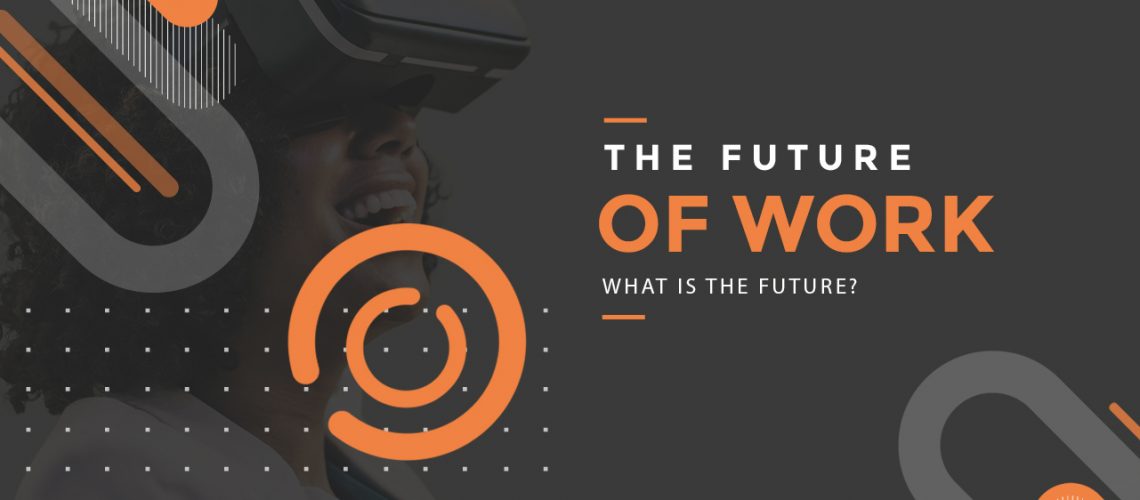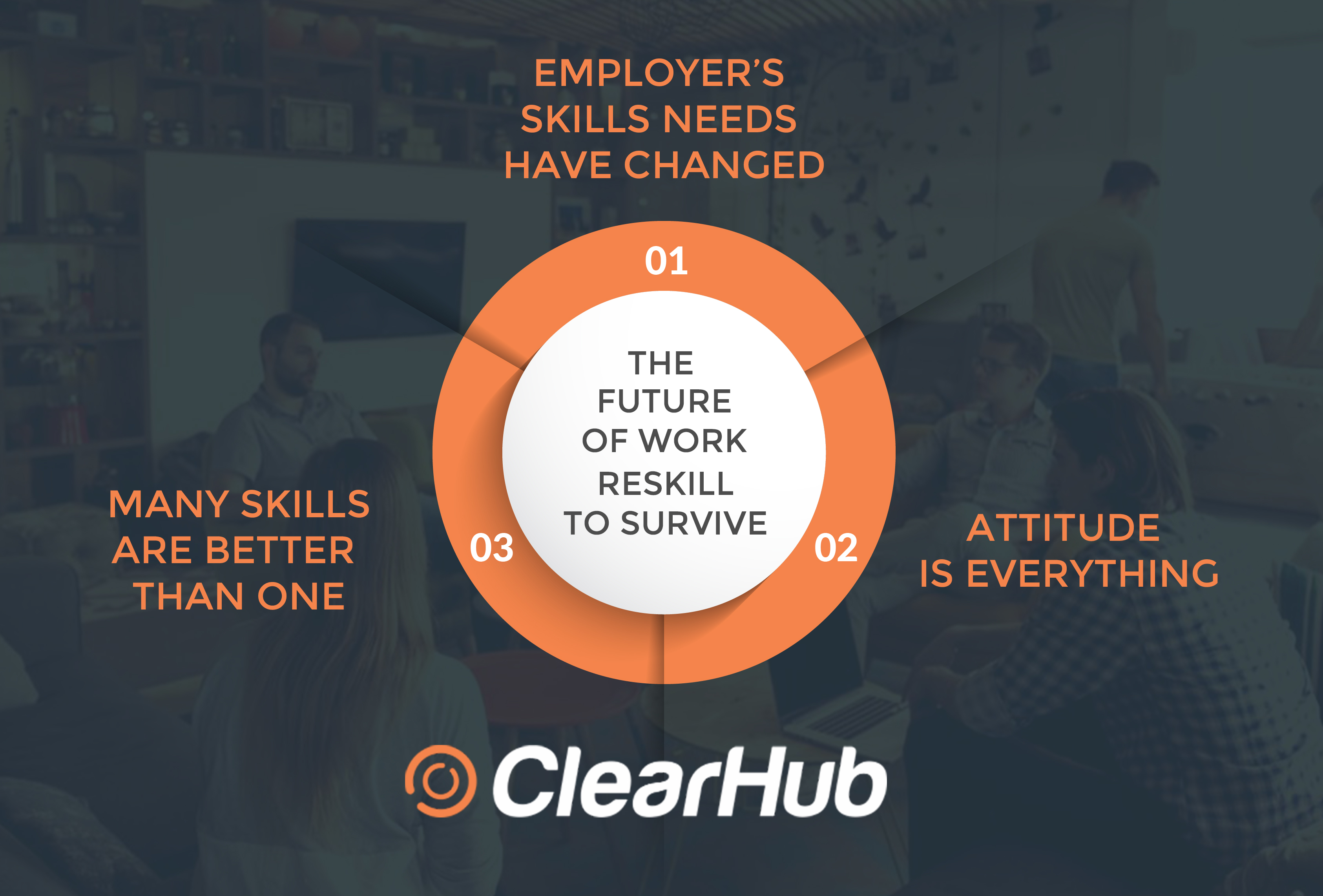
Simon Wood
The Future of Work: Reskill to Survive
- August 24, 2021
- , 10:00 am
- , Advice for Employers
A job used to be for life. 30 years of dedicated service, in the same career, doing the same thing. Every single day.
And that’s what we wanted.
Enough money to support a family and savings for retirement – only starting to really live our lives at the end.
That’s not what work is anymore.
It took a viral pandemic that brought the world to its knees to prove that the future of work isn’t rigid. It’s flexible, adaptable and always evolving with new technology.
And we, as people in work, have to be flexible and adaptable, too.
Skills needs have changed
A friend of mine runs a small department in a well-known national charity. We often talk about the challenges of modern management; running efficient teams and the challenges we can face as leaders.
We chat about everything; recruitment techniques, training, engaging and motivating staff – as well as dealing with “difficult” employees.
Through lockdown, we talked about the challenges of COVID-19, and how the future of work was set to change again. We talked about roles changing, skills shortages – and hopes and fears for the future of work.
One day, he asked me a seemingly simple question:
“What’s the one key thing you look for when hiring new employees?”
I was blindsided. It’s amazing how sometimes, the simplest questions can be the hardest to answer.
I heard myself give vague, waffley, nonsensical answers about the “multitude of skills needed in the modern workforce”.
I rattled on about the “importance of being flexible” and even had a take on how “cognitive diversity is a driving factor”.
Feeling my answers (and confidence) slip away, I grasped at how “motivation and enthusiasm” were the key factors I’d look for, to complement my team.
And my friend tried to hide his smile. To be fair – if someone had given me an answer as bad as that in a job interview, I wouldn’t have invited them back.
Safe to say, this wasn’t my finest hour. I thought about my rambling response for a long time afterwards.
And the question, too. But the question morphed in my mind, into something more pertinent:
“What’s the top skill someone would need to stay employable in the future?”

Many Skills Are Better Than One
As manager of the Innovation team at a rapidly growing tech company, the future of work is a topic I’m very familiar with.
Read more: Futureproof workplaces – the benefits of Cloud for remote working
But by changing the frame of the original question, I realised I already knew the answer.
Everything that I had (somewhat inelegantly) mentioned to my friend was important. But something was missing.
An article by Stephane Kasriel (CEO of Upwork) confirmed my thoughts. In it, he discusses the importance of reskilling:
“…ask yourself: Are my skills still in demand? What’s the outlook for these skills? And what skills could I work on today that would increase my income potential in the coming years?”
This was the missing piece. The one thing that connected all the factors I deemed important in my initial answer.
Put simply, reskilling is the ongoing process of developing your own skills. The pandemic basically forced people down this route – so at first, it didn’t seem as obvious – but then I realised, there’s actually a skill to reskilling. And it’s not something everyone possesses.
The answer to my friend’s original question hit me hard:
The key thing I look for in a new employee is their attitude.
Attitude is Everything
I could argue that everyone in work is constantly improving their skills. But, in order to be skilled at reskilling, a person must be able to recognise their own shortcomings, knowledge gaps and be aware of their working style.
You must have the right attitude for reskilling to work.
Your attitude and approach to reskilling are potentially the largest factors to determine your success.
We all need to be able to ask difficult questions about our skills. Especially in a post-COVID world.
- Are my skills still in demand?
- Will they be in demand in 5,10,20 years time?
- What other skills should I be looking at to increase my value?
Attitude makes up for a lot of shortcomings on paper.
I would personally take an inexperienced individual with the right attitude over a more experienced counterpart, every single time.
Because, being driven and proactive enough to take responsibility for your own learning – and flexible enough to make changes where necessary – is critical in work. Actually, it’s critical in life.
It’s no good waiting for disruption to catch up with you before you realise you need to evolve.
No matter if you’re talking about contractors, full time employees, interns or CEOs – I would argue that knowing how to reskill and upskill yourself, and working to make sure you have the right attitude, is going to become the most powerful combination you can possess for surviving in the future.
And so, in answer to my friend:
The top thing needed to succeed in the future is the skill of reskilling – with the right attitude.
After all, an employee who is willing to invest time and training into themselves will continue to be a credit to their employer, now and in the future.h
Hire Atlassian contractors – experienced remote workers
ClearHub finds top Atlassian contractors, equipped for the future of work. Our global network is made up of skilled, adaptable and flexible DevOps professionals: the kind of people who never stop learning.
Want to know more? Get in touch with our friendly team today – call +44 (0) 2381 157811 or send your message to info@clearhub.tech.



